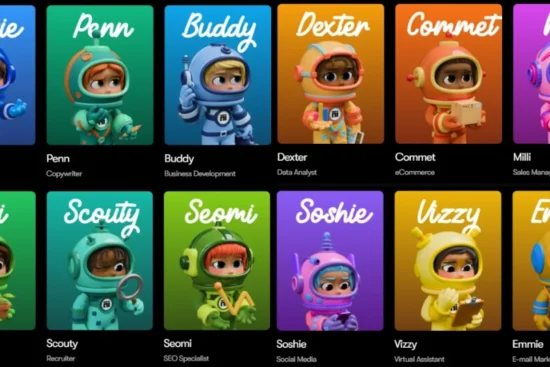
In a world that’s increasingly driven by technology, there’s a force at play that’s reshaping industries, solving complex problems, and propelling us into a future that once seemed like science fiction. We’re talking about machine learning, the powerhouse of artificial intelligence that’s transforming the way we live, work, and interact with the world around us. In this blog, we delve into the incredible power of machine learning, demystifying its marvels, and exploring its potential to revolutionize our lives.
Understanding Machine Learning: A Glimpse into the Future
At its core, machine learning is the science of enabling computers to learn and make decisions without explicit programming. It’s a subset of artificial intelligence that empowers machines to analyze vast amounts of data, identify patterns, and improve their performance over time. Imagine a system that can predict diseases with remarkable accuracy, optimize supply chains seamlessly, or even drive cars autonomously – all thanks to the prowess of machine learning.
Unveiling the Mechanism: How Machine Learning Works
Machine learning algorithms function like virtual detectives, sifting through data for clues and insights. They learn by processing data and adjusting their parameters iteratively until their predictions or classifications align with the desired outcome. The backbone of this process lies in neural networks – systems inspired by the human brain that recognize intricate patterns and relationships in data.
Diverse Applications: From Healthcare to Entertainment
The scope of machine learning is boundless, spanning across various sectors. In healthcare, it’s aiding in diagnosing diseases, personalizing treatments, and even predicting outbreaks. In entertainment, recommendation systems powered by machine learning suggest movies, music, and products tailored to individual preferences, enriching our leisure time.
What is Machine Learning Teaching Us?
Machine learning isn’t just about creating smarter machines; it’s about unveiling the secrets hidden within data. It teaches us to understand intricate relationships, predict future trends, and make informed decisions. For instance, it’s helping businesses anticipate market demand, optimize operations, and refine customer experiences.
Navigating Challenges: Bias and Ethical Concerns
While the potential of machine learning is immense, it’s not devoid of challenges. One of the prominent concerns is bias in algorithms, which can perpetuate inequalities present in data. Ensuring ethical use of machine learning, transparency, and addressing these biases are crucial to harness its full potential without adverse consequences.
Machine Learning in Our Daily Lives: A Seamless Integration
From voice assistants that understand natural language to fraud detection systems that protect financial transactions, machine learning has seamlessly integrated into our daily lives. It’s simplifying tasks, saving time, and enhancing convenience, making us wonder how we ever managed without it.
The Future: Machine Learning’s Uncharted Horizons
As machine learning continues to evolve, it’s important to anticipate its future trajectories. The blend of machine learning with other technologies like robotics, quantum computing, and augmented reality is likely to create a synergy that propels innovation even further. The possibilities are as exciting as they are limitless.
Final Words
In a world where innovation reigns supreme, machine learning stands as one of the most profound innovations. Its ability to decipher complex data, predict trends, and automate tasks heralds a future where machines become indispensable collaborators, propelling humanity into new realms of discovery and possibility.
Commonly Asked Questions
Q1: What distinguishes machine learning from traditional programming?
A1: Traditional programming involves explicitly instructing a computer on every step, while machine learning allows computers to learn from data and improve their performance over time.
Q2: How does machine learning impact job markets?
A2: While certain tasks might become automated, machine learning also creates jobs related to data analysis, model development, and algorithm optimization.
Q3: Is machine learning accessible to small businesses?
A3: Absolutely. With cloud-based services and open-source tools, small businesses can leverage machine learning for tasks like customer segmentation, marketing optimization, and more.
Q4: Can machine learning algorithms be biased?
A4: Yes, if the training data contains biases, the algorithms can inherit them. Ensuring diverse and representative training data is crucial to mitigate bias.
Q5: How can individuals learn about machine learning?
A5: Online courses, tutorials, and resources from platforms like Coursera, Udemy, and Khan Academy provide accessible ways to learn about machine learning.












